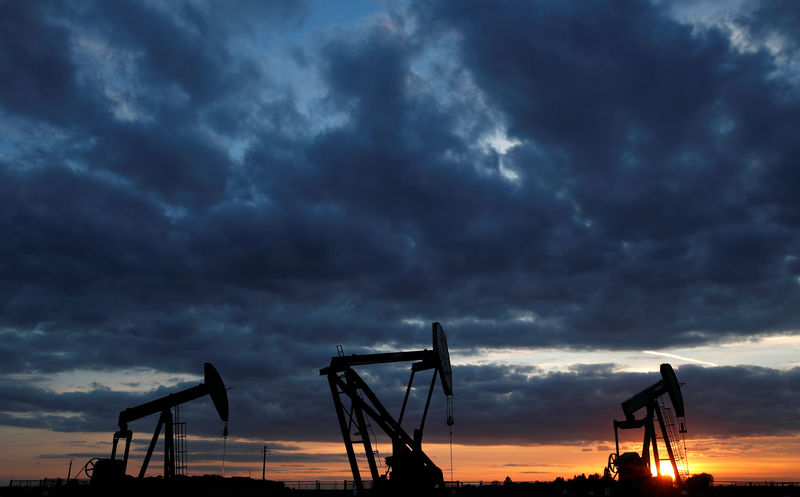(Bloomberg) -- Oil extended its slide in Asia, trading at near two-decade lows after production cuts agreed by top producers last week were seen barely making a dent in the demand destruction wrought by Covid-19 and increasing concerns that traders are quickly running out of room to store crude.
Futures in New York dropped as much as 5.4%, the lowest since November 2001 and following a 20% drop last week. China reported its first economic contraction in decades on Friday, a sign of how bad things could get in Europe and North America, which have yet to emerge from virus lockdown.
Near-term prices for U.S. crude are trading at huge discounts to later-dated contracts on concern the storage hub of Cushing, Oklahoma, will fill to capacity. That has seen prices disconnect from Brent futures in London.
Still, there were at least grounds for cautious optimism at the weekend. New York Governor Andrew Cuomo said the state may be past the high point of coronavirus deaths, as cases and fatalities slowed. Fewer daily deaths were also reported in Italy, Spain and the U.K.
Hedge funds were once again caught out by crude’s alarming descent, increasing their net-bullish position by 13% in the week ended April 14. It was the second straight week money managers boosted their net-long position in the face of 20% price drops in both weeks.
The price collapse is reverberating across the industry: oil explorers shut down 13% of the U.S. drilling fleet last week as the swelling worldwide glut of crude spurred drastic cost-cutting and project cancellations among drillers.
Crude prices in America’s oil capital are getting dangerously close to zero, with buyers in Texas offering as little as $2 a barrel for some oil streams, raising the possibility that producers may soon have to pay customers to take crude off their hands.
Singapore oil trader Hin Leong applied for protection from its creditors on Friday as it struggles to pay its debts. The son of the legendary founder of Hin Leong hid about $800 million in losses racked up in futures trading, suggesting a much bigger hole in the company’s finances than thought, according to people with knowledge of the matter.
©2020 Bloomberg L.P.
